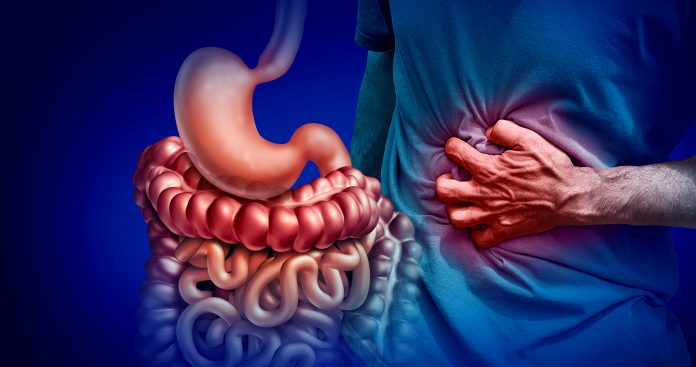
While overeating is all too common during Thanksgiving, some people with inflammatory bowel disease may want to have an extra portion of turkey according to new research from Thomas Jefferson University which showed that eating turkey could ease symptoms of ulcerative colitis. The mouse study, published recently in the journal Nature Communications, suggests that there is a link between certain foods that are high in tryptophan such as turkey, pork, nuts, and seeds and a lower risk of colitis flaring up.
If confirmed in human studies, this new discovery could provide a new interventional approach to improve long-term colitis treatments and outcomes.
“Although there are some treatments for ulcerative colitis, not everyone responds to them,” said the study’s senior author Sangwon Kim, PhD, an assistant professor of immunology at Thomas Jefferson University. “This disease has a huge impact on quality of life and can lead to surgery to remove the colon or cancer.”
Ulcerative colitis is characterized by inflammation of the inner lining of the colon and rectum, which has led Kim and colleague to search for methods to cool down this inflammation. Their research has focused on T-regulatory (T-reg) cells, the white blood cells whose primary role is to suppress or regulate the immune system. Their intent was to find ways to get more T-reg cells to the colon to help break the cycle of inflammation that causes colitis.
In their work, the investigators discovered that a receptor on the surface of T-reg cells, known as GPR15, acts as a magnet for the colon and that increasing the presence of this receptor could help guide T-reg cells to the inflamed colon. Through further investigation, the team discovered that tryptophan, a compound found in various foods including turkey, could increase the production of GPR15, and provide a potential pathway for reducing colitis-related inflammation.
To test their hypothesis, the researchers supplemented tryptophan in the diet of mice over two weeks. This led to a doubling of inflammation-suppressing T-reg cells in the colon tissue compared to mice without additional tryptophan. Even more encouraging, the investigators found that these effects remained for at least a week after the tryptophan was removed from the mice’s diets.
“In human time that might translate to about a month of benefit,” noted Kim who is also a researcher at the Sidney Kimmel Cancer Center.
But the team also found that adding tryptophan to the diet during a colitis flare-up showed little to no benefit in reducing inflammation, which suggests that it may only be useful as a preventative approach to managing the disease.
The research also reported a related chance finding, while searching for molecules that could increase GPR15: a molecule that explains why smokers seem to be protected against the development of colitis. Previous research has shown that that people who smoke cigarettes have a lower incidence of ulcerative colitis than the general public. Kim’s team found a molecule that is prevalent in smoke from cigarettes—and barbeque—can also increase GPR15 levels on T-reg cells.
“Although both might help protect against colitis, tryptophan is obviously the much safer and healthier option,” Kim said.
The next step for the investigators is to determine whether the results observed in the mouse models can be reproduced in humans. Tryptophan supplement is considered safe up to a limit of 100 milligrams per day, a level that Kim believes could be sufficient to have a protective effect in humans against colitis flare-ups.













